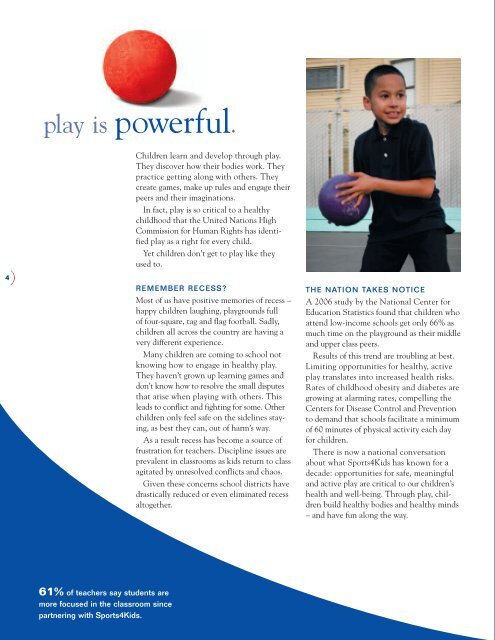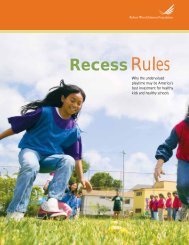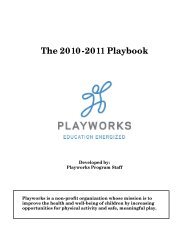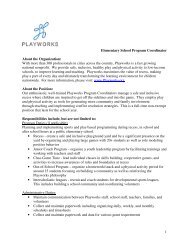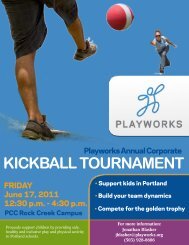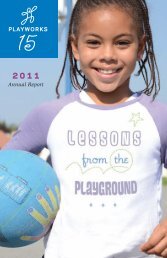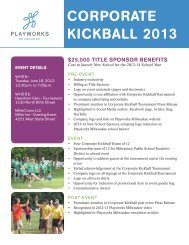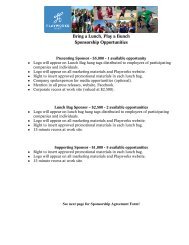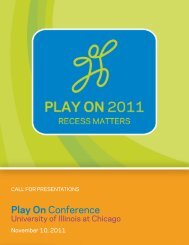Layout 5-3 - Playworks
Layout 5-3 - Playworks
Layout 5-3 - Playworks
Create successful ePaper yourself
Turn your PDF publications into a flip-book with our unique Google optimized e-Paper software.
play is powerful.<br />
4<br />
Children learn and develop through play.<br />
They discover how their bodies work. They<br />
practice getting along with others. They<br />
create games, make up rules and engage their<br />
peers and their imaginations.<br />
In fact, play is so critical to a healthy<br />
childhood that the United Nations High<br />
Commission for Human Rights has identified<br />
play as a right for every child.<br />
Yet children don’t get to play like they<br />
used to.<br />
REMEMBER RECESS?<br />
Most of us have positive memories of recess –<br />
happy children laughing, playgrounds full<br />
of four-square, tag and flag football. Sadly,<br />
children all across the country are having a<br />
very different experience.<br />
Many children are coming to school not<br />
knowing how to engage in healthy play.<br />
They haven’t grown up learning games and<br />
don’t know how to resolve the small disputes<br />
that arise when playing with others. This<br />
leads to conflict and fighting for some. Other<br />
children only feel safe on the sidelines staying,<br />
as best they can, out of harm’s way.<br />
As a result recess has become a source of<br />
frustration for teachers. Discipline issues are<br />
prevalent in classrooms as kids return to class<br />
agitated by unresolved conflicts and chaos.<br />
Given these concerns school districts have<br />
drastically reduced or even eliminated recess<br />
altogether.<br />
THE NATION TAKES NOTICE<br />
A 2006 study by the National Center for<br />
Education Statistics found that children who<br />
attend low-income schools get only 66% as<br />
much time on the playground as their middle<br />
and upper class peers.<br />
Results of this trend are troubling at best.<br />
Limiting opportunities for healthy, active<br />
play translates into increased health risks.<br />
Rates of childhood obesity and diabetes are<br />
growing at alarming rates, compelling the<br />
Centers for Disease Control and Prevention<br />
to demand that schools facilitate a minimum<br />
of 60 minutes of physical activity each day<br />
for children.<br />
There is now a national conversation<br />
about what Sports4Kids has known for a<br />
decade: opportunities for safe, meaningful<br />
and active play are critical to our children’s<br />
health and well-being. Through play, children<br />
build healthy bodies and healthy minds<br />
– and have fun along the way.<br />
61% of teachers say students are<br />
more focused in the classroom since<br />
partnering with Sports4Kids.


